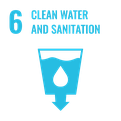

villages WERE in need of adequate access to drinKing water

WASH project - TOGO
Wash projects provide access to drinking water in rural communities

Addressed issue / objectives
- Installation of three boreholes equipped with human powered pumps
- Raising awareness on waterborne diseases, hygiene and sanitation practices in order to implement measures to prevent these diseases. Community education on water, sanitation and hygiene are being provided.

Project budget
Total project costs: 14 021 €
Funding amount: 10 190 €
Cotton company contribution: 3 831 €

Project location
- Namare Puob n kpaad (NAKI OUEST SAVANES),
- Tchokoroko (CENTRALE) and
- Aloba (PLATEAU NORD)

Project benefits
2329 cotton farmers and their communities benefit from the intervention

Project status / duration
updated December 2022 - June 2023
finished
Former sources for water collection in the selected villages
New wells simplify the water collection

Project details
Although the Togolese State and the various partners are devoting great efforts to improve the supply of portable water, access to clean water remains a major problem in the Savanes Central and Northern Plateau regions. These regions are also heavily exposed to the effects of climate change, in the form of an increase in droughts and unpredictable rainfall patterns. Women are forced to walk about 2 km on average to reach the nearest source of drinking water or use polluted water from the dam Due to these challenges, three villages were identified, which were in need of adequate access to drinking water. These villages are Namare Puob n kpaad (NAKI OUEST SAVANES), Tchokoroko (CENTRALE) and Aloba (PLATEAU NORD)
The project is supported and coordinated by NSCT, a limited company, is 51 % owned by the Singaporean OLAM International Group, 25 % by the National Federation of Cotton Producers Group and 24 % by the Togolese State.
Thanks to the new wells, residents now have unrestricted access to clean water, which they can use for drinking and cooking. This significantly reduces the incidence of diarrheal diseases, especially among children. In addition, the water can be used for personal hygiene and washing clothes, which reduces the incidence of skin deseases. Whereas previously the procurement of water involved long marches and the associated fatigue and pain of carrying water. Especially for women, the inhabitants now benefit from the short distances to the wells built directly in their villages.
Sustainability
Once the wells were handed over to the village communities, "water committees" took over their management and maintenance, as well as responsibility for further hygiene training for the residents.

Mesurable results
Output - Availability of drinking water, knowledge about waterborne diseases and prevention measures
Outcome - Reduced rate of waterborne diseases, reduced walking distance to fetch water, improved living conditions especially for women.












